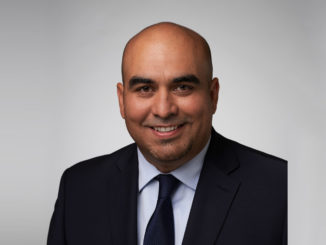There has never been a better time to invest in the development of your frontline leaders. As we’ve talked about before, developing your leaders starts with self-development. Assessing where you are today and what needs your attention the most – physical, mental, financial – will help align your focus on who needs our support on your team.
I have found the Enneagram has been the fastest way for leaders to become more self-aware while gaining more emotional intelligence. It’s been an incredibly effective tool. Once a leader has a clear plan for self-development, we move on to creating meaningful, productive, and professional relationships with those they lead.
Building relationships in our role as a leader is a foundational quality that we must master
How can we be intentional with our relationships that matter the most? The first step is to acknowledge that the relationship between team members and leaders has changed. Team members used to care about their paycheck, but now they need to connect to a purpose. They were satisfied with just having a job, but now they need to know you are going to invest in them and develop them. You will need to have a plan for that. There used to be value in being a boss, but now there is no value in being the boss. You only have value if you are their coach and looking out for their best interests. Today’s workforce doesn’t hold much value in yearly reviews, so your leadership team will have to figure out how to have ongoing coaching conversations to assist with their development. Leaders could focus on weaknesses before to motivate change, but today, team members will demand you focus on their strengths. If you don’t, they will go where they will. The point is, we need to update the way we lead.
Map Out and Prioritize Your Relationships
Understanding which relationships matter the most is a big step in eliminating a lot of unnecessary frustration. Map out those important relationships, assess the trust level, and identify your common goal. Identifying a common goal will help you stay focused on the goal when challenges arise. The easiest way to build trust in a relationship is taking immediate action on team member feedback and offering words of appreciation on a daily basis. Leaders should have a daily plan for both. Once you have assessed where your time is needed the most, the next step is to create the plan. The logistics are important, but so is the support needed for you to make adjustments to create a smooth relationship. Finding a mentor, coach, or therapist is important as well.
Collaborate Starting with SWOT
Now it’s time to collaborate! The easiest way for a new team to collaborate is to do a SWOT exercise. Start by identifying the team’s Strengths, Weaknesses, Opportunities, and Threats. Where should you focus your energy? Where are you thriving? What can you celebrate? Creating a reward and recognition program in your department will make a difference in your turnover. Once you are in alignment with each other, give the team member a platform to communicate with you as needed. For example, Raving has created a Communication 360 worksheet for this where a team member can use it to initiate a conversation as needed.
Scoreboards for the Win
Now would be a good time to put Scoreboards together for your team’s goals. Delegate the tracking and updating to as many team members as possible. Be sure to heavily celebrate those goals!
Which Stage Are You In? Developing a Change System
The next place we want our leaders to have experience in is change. Hopefully, we are changing and growing continuously. We need to prepare our team for this type of constant change and the first step is creating a credible leadership team. Do they have a Change System? Is it easy to gain clarity on what the team role will be in the change? Can we easily move through the Team Stages of Form, Storm, Norm, Perform when change occurs, or are we stuck in the storm?
As you can see, understanding what it takes to be an effective leader in today’s environment is very important. Being able to develop key relationships is not only helpful but also a requirement. If we don’t, we will continue to lose people, leaving our teams depleted and frustrated.





